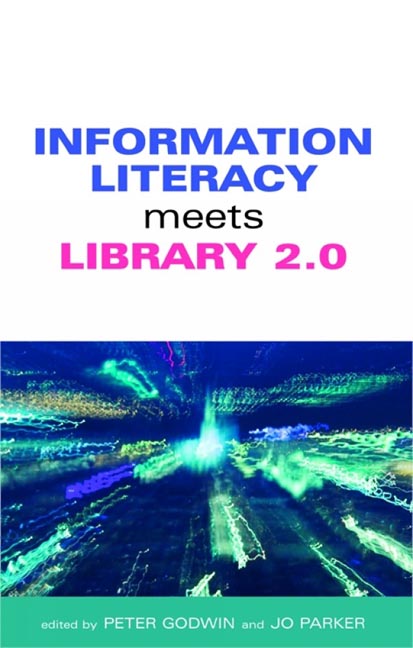16 - Conclusion
from Part 4 - The future
Published online by Cambridge University Press: 08 June 2018
Summary
Is Library 2.0 dead? The cynics may say that it never really had a life of its own. Others may be saying that it has peaked. Maybe the usefulness of the title ‘Library 2.0’ has passed. What is more certain is that the spirit is still present, and we should take Bradley's advice (2007) to ‘forget the 2.0 label and consider how you can do things better’. Following the original ethos, the mainstream libraries will take what they want from the movement. The 2.0 mentality is here to stay. There is no going back: only further future developments, into a new 3D web and searching into David Weinberger's (2007) ‘kind of’ world. In this concluding chapter we will take a look at how Web 2.0 is shaping the world we live in, the operation of the most significant 2.0 tools for the delivery of IL, followed by new technological developments, and how this affects the IL mission.
Our changing 2.0 world
Andrew Keen admits that his book The Cult of the Amateur: how today's internet is killing our culture (2007) is a polemic. He lampoons the untrustworthiness of sites like Wikipedia, YouTube, Google and MySpace. He loathes the way in which anyone can now post their opinions via blogs, however extreme or poorly written. This activity implies that unqualified public opinion is equal to that of experts. In this 2.0 world people are becoming accustomed to getting items for free, which undermines paid expertise, and further diminishes the respect for intellectual property. The web generation can seem threatening: how far should academics and librarians give them the kind of experience that we think they want, and pander to their gadgetry? Michael Gorman (2007), former President of the American Library Association, has been a vocal critic of what he calls the ‘Blog people’, and of the adoption of 2.0 technologies. He also decries the digital Maoism which devalues expert opinion and raises up the wisdom of the crowd. Surely we, as library professionals, should point out that experts are not always right and that we can all learn through dialogue with peers and a variety of resources. We are going to have to accept user tagging in our catalogues and these entries will supplement, not destroy, our catalogue entries. The co-existence of amateur with professional is something that we should both understand and promote. This can only enhance our IL mission.
- Type
- Chapter
- Information
- Information Literacy Meets Library 2.0 , pp. 165 - 182Publisher: FacetPrint publication year: 2008
- 2
- Cited by



